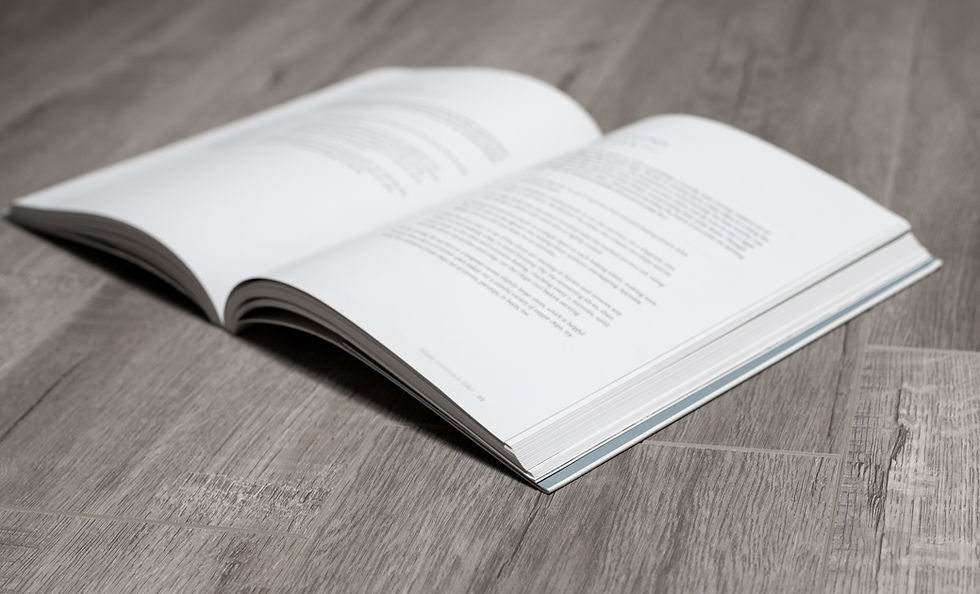Protect Your Pavers: A Comprehensive Guide to Sealing
- Darren Pohl

- May 10, 2023
- 4 min read
I. Introduction
Laying the foundation of a home or a public space with pavers has been an enduring practice, adding both aesthetic appeal and functionality. However, the permanence and beauty of these structures are inherently linked to their maintenance – specifically, the crucial act of sealing them. With sealing, we extend the longevity of pavers and amplify their natural charm. The alternative, neglecting this significant procedure, could lead to a grim spectacle of fading colors, stubborn stains, and unwanted weed growth.
II. Understanding Pavers
Pavers, or paving stones, are individual units made from various robust materials, including concrete, brick, and natural stone. They are used to create exterior flooring for various areas such as driveways, patios, and walkways. Each type of paver offers unique aesthetic and practical advantages, from the rustic allure of brick to the unparalleled durability of concrete. The installation of pavers is a meticulous process, often involving the excavation of the area, placement of a gravel base, and finally, the laying and interlocking of the pavers.
III. Signs that Your Pavers Need Sealing
Pavers, like other exterior features, are subjected to the harshness of weather, foot traffic, and time. As such, several signs indicate a need for sealing. Fading color, a common symptom of UV ray exposure, detracts from the aesthetic appeal of your pavers. Stains and discoloration, whether from food, drink, or other external elements, can also mar the pavers' surface. Furthermore, weeds sprouting between pavers, and erosion of paver joints signal structural concerns, emphasizing the necessity of sealing.
IV. Benefits of Sealing Pavers
Sealing pavers offers a litany of benefits. It provides a protective shield against stains and discoloration, preserving the original aesthetics of your pavers. The sealant also acts as a barricade against damaging UV rays, preventing color fading. Weed growth, an unsightly and structural concern, is hindered due to the blockade formed by the sealant. Furthermore, sealing pavers protects against erosion, ensuring the longevity and stability of your outdoor space.
V. Types of Paver Sealers
There is a multitude of paver sealers available, each with unique characteristics. Acrylic sealers offer excellent UV resistance and are available in different finishes. Urethane sealers provide robust protection against stains and abrasions, while epoxy sealers are renowned for their durability and high gloss finish. Silicate sealers, though not forming a surface film, react chemically with the pavers for increased hardness. Lastly, penetrating sealers permeate the paver surface, providing protection without altering the appearance.
VI. How to Prepare Pavers for Sealing
Before the application of the sealer, it's imperative to prepare the pavers adequately. Begin by cleaning the pavers, removing any dirt, stains, or existing sealant. If any damage, such as cracks or chips, is observed, timely repairs are essential. Finally, ensure the pavers are completely dry before proceeding with the sealing, as moisture can compromise the effectiveness of the sealant.
VII. When to Seal New Pavers
While the installation of new pavers is an exciting addition to any space, it's crucial to seal them at the appropriate time. Generally, new pavers should be sealed after a period of 60-90 days. This time allows any efflorescence, a white powdery substance, to dissipate. Sealing new pavers enhances their color, facilitates easier cleaning, and increases resistance to weathering and wear.
VIII. When to Reseal Pavers
Resealing pavers is a practice of maintenance that preserves their aesthetic and functional integrity over time. Typically, pavers should be resealed every 3-5 years. However, this timeline can be influenced by several factors, such as the type of sealant used, the level of foot traffic, weather conditions, and the quality of the initial installation. Regular inspections and timely resealing can significantly extend the lifespan of your pavers.
IX. DIY vs. Professional Sealing
The decision between DIY and professional sealing hinges on several considerations. DIY sealing can be a cost-effective solution and offers a sense of accomplishment. However, it requires time, effort, and a degree of expertise to avoid common pitfalls. On the other hand, hiring a professional service, such as Clean Master Exterior Services, guarantees a high-quality result, backed by years of industry experience. Professionals have an in-depth understanding of the sealing process and can provide personalized advice for maintaining your pavers.
X. Cost of Sealing Pavers
The cost of sealing pavers is influenced by a variety of factors, including the size of the area, the type of sealant used, and whether you opt for a DIY approach or hire professionals. While DIY may seem financially attractive, consider the cost of materials, tools, and your time. Professional services, such as those offered by Clean Master Exterior Services in Port St Lucie, Palm City, Stuart, Jensen Beach, Vero Beach, and Jupiter, provide comprehensive solutions that may be more cost-effective in the long run.
XI. Conclusion
The act of sealing pavers is a small investment that pays off in preserving the aesthetic appeal and extending the lifespan of your outdoor spaces. From preventing stains and discoloration to protecting against UV damage and weed growth, sealing offers a litany of benefits. With various sealant options available, and the choice between DIY or hiring professionals, there's a solution for every paver, every home, and every budget. Regularly sealing your pavers isn't just a maintenance task; it's a commitment to the longevity and beauty of your space.
%20(1).png)

Comments